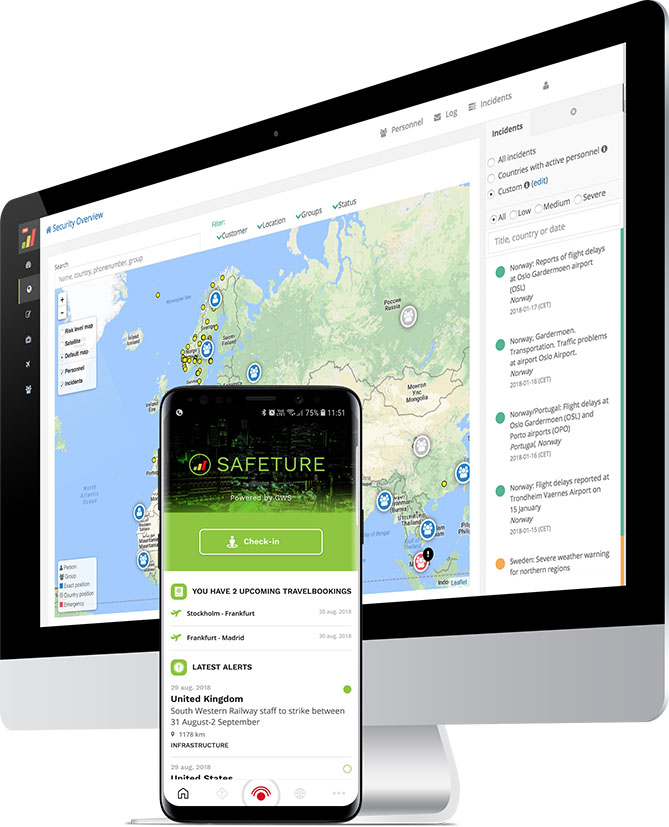(Singapore, 19 Jan 2025)As the landscape of global travel continues to evolve under the pressure of climate change and geopolitical shifts, travelers in 2025 face a new array of challenges and opportunities. The concept of “Coolcationing” is gaining traction, with individuals seeking cooler climates to escape rising global temperatures, while “Last-Chance Tourism” grows in popularity as tourists rush to visit sites endangered by environmental changes.
According to Safeture, the leading technology platform for travel risk management, and Riskline, a global expert in travel risk analysis and content provision, beyond climate-related changes, the most significant risks for business and leisure travelers in 2025 arise from geopolitical tensions and digital challenges. In their latest annual forecast, “Foresight 2025,” these global specialists in professional travel risk management and analysis provide a comprehensive outlook.

Geopolitical and Administrative Challenges
Travel in 2025 is significantly impacted by ongoing geopolitical tensions and new administrative hurdles. Regions like the Middle East and parts of Europe remain hotspots for unpredictability, affecting flight routes and travel plans. The implementation of systems like the Schengen Entry/Exit System (EES) and the European Travel Information and Authorization System (ETIAS) will introduce more rigorous checks at European borders, increasing the need for careful planning and preparation by travelers.
The Climate Change Impact
The effects of climate change are reshaping travel priorities and practices. Increasing occurrences of extreme weather events such as heatwaves, floods, and storms are influencing destination choices, pushing the travel industry towards more sustainable practices and offerings. This shift is mirrored in the rise of domestic travel, which serves as a more sustainable alternative to long-haul flights.

Digitalization’s Double-Edged Sword
The travel industry’s shift towards digitalization offers enhanced convenience and efficiency through technologies like biometric border controls and AI-driven travel planning. However, this digital transformation also brings new risks, including cyber threats and IT disruptions, which could significantly impact travel logistics and security.
Health Concerns in a Changing Climate
Emerging health risks are a prominent concern, with new viruses and climate-related diseases posing threats in various regions. The spread of diseases like Mpox, Marburg, and cholera, exacerbated by environmental factors, underscores the need for robust health strategies to protect travelers, particularly during business trips.

Navigating 2025’s Travel Landscape
The travel environment of 2025 demands adaptability and resilience from both travelers and industry providers. Employing professional travel risk management systems that offer real-time information and support can play a critical role in navigating these challenges. As the year unfolds, the ability to respond proactively to changing conditions will be crucial for safe and successful travel experiences.
while travel in 2025 offers exciting new opportunities to explore the world, it also requires a heightened awareness of environmental, digital, and geopolitical factors. Staying informed and flexible will be key to managing the risks associated with global travel in these uncertain times.




































